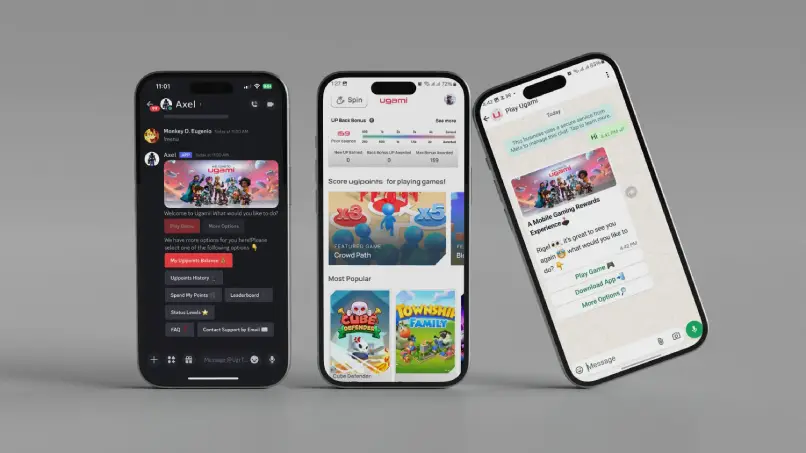How play to earn rewards can boost your gaming experience and profits
How play to earn rewards can boost your gaming experience and profits
Blog Article
Why Play-to-Earn Benefits Are Altering the Way You Play and Gain
The introduction of play-to-earn models signifies a notable change in the gaming landscape, welcoming players to discover not only the entertainment worth of games however also their possible as income-generating platforms. This standard offers diverse advantages, including possession ownership with blockchain modern technology, which essentially modifies player involvement and investment. As this design advances, it presents a special collection of challenges that might influence its sustainability and appeal. Comprehending these characteristics elevates essential concerns regarding the future of pc gaming and the ramifications for both gamers and developers alike.
Appearance of Play-to-Earn Versions
In recent years, the gaming industry has actually seen a significant transformation with the development of play-to-earn models, fundamentally altering how players involve with electronic atmospheres. This ingenious technique enables players to gain substantial incentives via their in-game tasks, producing a shift from traditional pc gaming standards where pleasure and competition were the primary inspirations.
Play-to-earn versions take advantage of blockchain innovation and non-fungible tokens (NFTs) to provide gamers with ownership of in-game assets, which can be traded or sold for real-world money. Therefore, players are incentivized to spend effort and time into video games, promoting a sense of firm and monetary opportunity. play to earn rewards. This change has actually attracted a varied player base, including those that may have formerly checked out gaming as a totally leisure activity
Numerous platforms have actually emerged, showcasing successful implementations of this model, such as Axie Infinity and Decentraland. These systems have not only created significant income however additionally sparked conversations around the sustainability and values of such economic systems. As play-to-earn versions continue to evolve, they assure to redefine the partnership in between players, programmers, and the wider electronic economic climate, paving the way for a brand-new era in video gaming.
Advantages for Gamers
As gamers involve with play-to-earn versions, they open a range of benefits that prolong past plain entertainment. Unlike conventional video gaming, where gamers spend time and cash without substantial returns, play-to-earn systems allow gamers to earn copyright or in-game possessions that can be converted to real-world worth.
Furthermore, play-to-earn designs promote neighborhood building among gamers. Players usually team up to attain shared objectives, consequently growing social connections that improve the total experience. This feeling of area can lead to participating gameplay, where gamers share methods and resources, enhancing both individual and team success.
In addition, these models can democratize accessibility to pc gaming by enabling players from varied financial histories to profit financially. By getting involved in play-to-earn environments, individuals can acquire abilities and knowledge about blockchain technology, more broadening their career opportunities in the growing digital economy. Inevitably, the benefits for gamers extend well past gameplay, affecting their social, financial, and instructional landscapes positively.
Obstacles in the Ecological Community
While the play-to-earn environment provides significant possibilities, it is not without its challenges. Variations in value can hinder prospective gamers who look for secure revenue streams.
One more obstacle is the threat of rip-offs and fraudulent systems that can plague the environment. Gamers may run into deceptive platforms promising high incentives however ultimately causing financial loss. Making certain trust fund and protection is essential for the lasting viability of play-to-earn versions.
Furthermore, the ecological influence of blockchain pc gaming can not be forgotten. The power usage linked with mining and purchase handling increases honest inquiries about sustainability. Game programmers have to find an equilibrium in between fulfilling players and reducing environmental impacts.
Finally, the regulative landscape is still developing, posing possible dangers for designers and gamers alike. Uncertain legal structures can prevent advancement and limit the development of play-to-earn ecological communities. Resolving these challenges is essential for realizing the full possibility of this transformative pc gaming paradigm.
The Duty of Blockchain Modern Technology
Blockchain modern technology serves as the foundation of the play-to-earn ecosystem, attending to a lot of the difficulties previously laid out. By utilizing decentralized ledgers, blockchain makes sure openness and safety and security in deals. Players can confidently earn and trade in-game properties, weblink knowing that possession is proven and exempt to adjustment.

Tokenization of properties plays an essential function, giving players true possession of their in-game things, which can be acquired, offered, or traded on different industries. This motivates a vibrant additional market, where gamers can monetize their abilities and use this link time invested in the video game.
Additionally, blockchain innovation makes it possible for interoperability between different video games and platforms, enabling players to carry their assets throughout various communities. This versatility not just enhances customer experience yet also advertises an extra comprehensive gaming setting, eventually improving the landscape of pc gaming and earning.
Future Patterns in Video Gaming
The pc gaming industry gets on the edge of a transformative advancement, driven by emerging innovations and moving player assumptions. As play-to-earn models gain grip, gamers are increasingly looking for immersive experiences that mix home entertainment with substantial incentives. This shift is prompting developers to introduce, concentrating on creating appealing gameplay that cultivates community and communication.
One significant pattern is the integration of digital fact (VR) and enhanced reality (AR), improving the gaming experience by supplying deeper immersion and interactive settings. Additionally, developments in expert system are allowing extra sophisticated non-player characters (NPCs) and adaptive gameplay, customizing experiences to specific player preferences.

Verdict
In final thought, the pop over to this web-site play-to-earn design is dramatically transforming the gaming landscape by enabling players to derive real-world value from their in-game tasks. This paradigm shift not just enhances gamer engagement and investment however likewise increases challenges that need to be dealt with to ensure sustainability within the ecological community. As blockchain innovation remains to promote ownership of electronic assets, the future of gaming promises additional innovation and chances for gamers throughout diverse histories.
Report this page